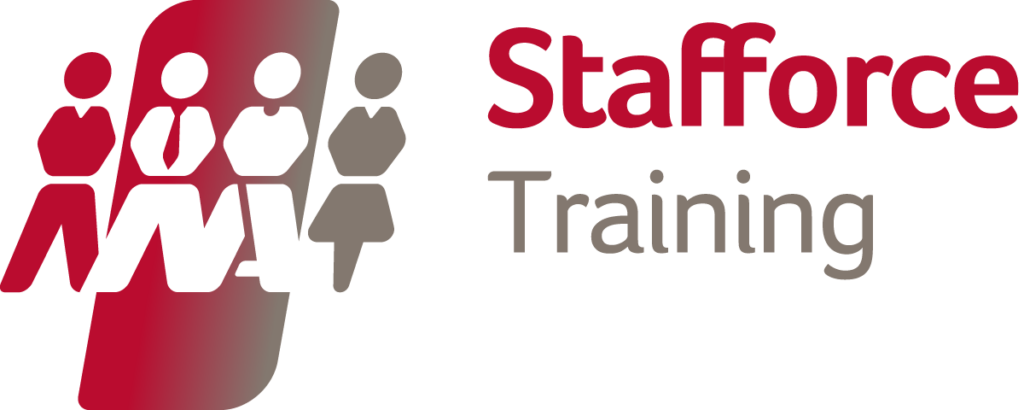Navigating the Future of Safety: Stafforce Ports Expert Insights
Each year, World Maritime Day provides an opportunity to reflect on the critical role of the maritime industry and the workforce that supports it. This year’s theme, “Navigating the Future: Safety First”, highlights the industry’s ongoing evolution and the vital importance of safety in this ever-changing environment.
 At Stafforce Ports, we have proudly specialised in providing bespoke, flexible labour solutions to the maritime industry for over 17 years. As one of the UK’s largest providers of port labour, with over 50 clients across seven locations, including five of the Freeport custom sites, our industry knowledge and expertise are second to none. To gain valuable insights into the current state of the industry, we spoke with some of our port recruitment experts to discuss the skills that are in demand, career advice for those entering the field, and how we support safety through our comprehensive training programmes.
At Stafforce Ports, we have proudly specialised in providing bespoke, flexible labour solutions to the maritime industry for over 17 years. As one of the UK’s largest providers of port labour, with over 50 clients across seven locations, including five of the Freeport custom sites, our industry knowledge and expertise are second to none. To gain valuable insights into the current state of the industry, we spoke with some of our port recruitment experts to discuss the skills that are in demand, career advice for those entering the field, and how we support safety through our comprehensive training programmes.
Skills in Demand and Career Advice from Port Recruitment Experts
 Danny Marshall, National Operations Manager, Operational Excellence in Liverpool, offered practical advice for anyone starting a career on the docks:
Danny Marshall, National Operations Manager, Operational Excellence in Liverpool, offered practical advice for anyone starting a career on the docks:
“When beginning a career on the docks, there are several things that will make you stand out and allow you to progress at a fast pace. You’ll need to be prepared to work in all weather conditions and remain on your feet for long periods. Flexibility is key, as shifts can vary greatly, often requiring night or weekend work to accommodate shipping schedules. Individuals who can offer full flexibility around the clock will be able to access further port-based skills faster than someone working a more traditional shift pattern.”
Danny also highlighted the importance of certifications: “Obtaining qualifications such as a Forklift Truck (FLT) licence can significantly boost your career prospects, allowing you to take on more specialised roles and move up the ladder quicker. With that in mind, having experience in general warehouse work can also put you in good standing. Combined with reliability and adaptability, these skills are highly valued in the fast-paced dock environment.”
 Joanne Grant, Service Delivery Manager at Stafforce Ports Immingham, provided a detailed breakdown of the skills currently in demand: “We are always looking for good port operatives, tug drivers, shovel drivers, slinger banksmen, tally people, hopper drivers, pinning operatives, weighbridge operators, forklift truck drivers, bobcat drivers, and anyone with experience operating heavy plant machinery. Those with this kind of experience will usually fit into most of our roles with ease.”
Joanne Grant, Service Delivery Manager at Stafforce Ports Immingham, provided a detailed breakdown of the skills currently in demand: “We are always looking for good port operatives, tug drivers, shovel drivers, slinger banksmen, tally people, hopper drivers, pinning operatives, weighbridge operators, forklift truck drivers, bobcat drivers, and anyone with experience operating heavy plant machinery. Those with this kind of experience will usually fit into most of our roles with ease.”
Joanne explained that Stafforce provides in-house training for all of these roles. “We offer all the necessary training for these positions, and they are part of the ABP Academy programmes, which means that successful candidates will receive transferable certificates that can be used within any ABP port.”
She also stressed the importance of supporting candidates with their maritime career journey: “If anyone needs help with CV writing, we are always happy to offer advice and guidance.”
 Natalie Makari, Operations Manager at Tyne & Tees Port, shared best practices for those putting together a CV for the maritime industry:
Natalie Makari, Operations Manager at Tyne & Tees Port, shared best practices for those putting together a CV for the maritime industry:
- Dates: Clearly state the dates for each role or period of education to provide a timeline of your experience.
- Skills: Highlight both technical and soft skills that demonstrate your suitability for the role.
- Certificates and Training: List any certifications, qualifications, or training courses you’ve completed, especially those relevant to the maritime industry.
Natalie also reiterated the key skills currently in demand across UK ports:
- Forklift Operation: Expertise in operating forklifts for materials handling and logistics is highly sought after.
- Slinger/Signaller (Banksman): Experience in safely directing crane movements and managing lifting operations is another critical skill valued by employers.
By following these guidelines, candidates can ensure their CVs stand out in a competitive job market.
Supporting Safety in the Maritime Industry
 In keeping with the theme of “Safety First”, Stafforce Ports places a strong emphasis on health and safety in all aspects of port operations. Through our dedicated brand, Stafforce Training, we offer a comprehensive range of health and safety courses to ensure that our workers are fully prepared to meet the challenges of the maritime industry.
In keeping with the theme of “Safety First”, Stafforce Ports places a strong emphasis on health and safety in all aspects of port operations. Through our dedicated brand, Stafforce Training, we offer a comprehensive range of health and safety courses to ensure that our workers are fully prepared to meet the challenges of the maritime industry.
As detailed in our recent article on Navigating Port Safety, ports are unique environments that come with inherent risks. From working at heights to handling heavy machinery, port workers face daily challenges that require specialised training. At Stafforce, our bespoke safety training programmes cover all essential areas, including safe materials handling, forklift operation, and working in confined spaces.
We work closely with employers to tailor our training solutions, ensuring that workers are fully equipped with the knowledge and skills required to operate safely in these demanding environments. This commitment to safety not only protects workers but also ensures the smooth and efficient running of port operations.
Our safety training programmes are trusted by leading companies across the UK, and as the maritime industry continues to grow, we remain dedicated to fostering a safety-first culture.
As the maritime industry navigates the future, the importance of safety and skilled labour will continue to be paramount. The UK ports are expanding, creating new opportunities for individuals to develop rewarding careers. At Stafforce Ports, we are proud to provide the training, skills, and career support needed to help workers thrive in this dynamic environment.
Whether you are just starting out or looking to progress in your career, the opportunities in the maritime industry are vast, and Stafforce is here to help you navigate your future with safety and skill. Get in touch with our Port teams here.




